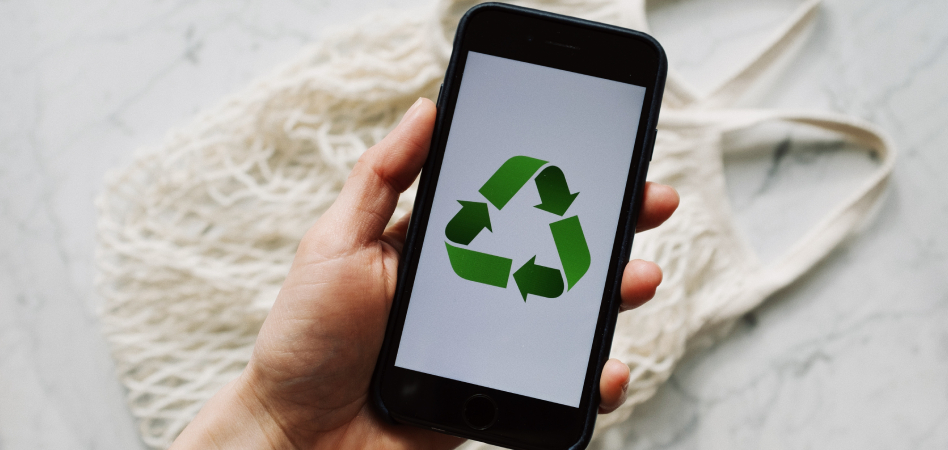Sustainability: the key to sales success

Talking about sustainability today, in any social, economic or service sector, is equivalent to talking about civic responsibility, social awareness, preserving the resources of the planet on which we live, the future.
To limit the term down, speaking about sustainability applied to industrial production is inextricably associated with the implementation of waste recycling, of an ecological strategy for packaging, of constant control of air quality, of purification and reuse of industrial water and, also, of management of soil pollution and noise pollution.
To talk about sustainability in the industrial world, in general, and in the design and manufacture of decorative fittings, in particular, is to talk about REI, due to its track record, its commitment and, ultimately, in its own right. It’s not a question of keeping up with the sustainable trends that are being imposed. It’s not a question of image. This is not a reversible environmental management policy.
When REI decides to apply the necessary resources to achieve an absolutely sustainable production system, it does so out of its own conviction, from the very moment an article is designed, through its prototyping, mould making, metal casting and shaping, to packaging for distribution at the point of sale.
Each and every one of the stages are carefully designed to protect the environment and contribute to the sustainability of the planet.
What does REI gain by applying comprehensive sustainable management?
Greater sales success? A green image that boosts its presence in a business world that is increasingly aware of the challenge posed by climate change? Gaining the trust of informed customers who have stopped looking the other way and who are growing, exponentially, at an unprecedented rate? It’s a yes to all that, of course. But REI’s motivation was in place before that happened.
If the environmental strategy of this benchmark brand in the manufacture of decorative fittings stands out at the dawn of the third decade of the 21st century, when environmental awareness is finally beginning to permeate diverse social sectors, then that is for one specific reason: the degree of experience REI has as a pioneering company in sustainable industrial practices.
At REI, efforts to make our entire production process sustainable and respectful of the environment is based on a work system split into areas, that’s active 365 days a year and works on various fronts. For REI, sustainability is no longer a goal; it has long been a condition of the industrial manufacturing of decorative fittings.
It’s sustainability as a rule, not as an exception or a future achievement.
There’s no longer time to plan long-term strategies, so when a company like REI has integrated a sustainable and stable management dynamic, it’s noticed and it’s shared widely. Customers, too, who are increasingly aware, value it to the extent of it being a decisive factor at the point of purchase.
In what ways? How does a DIY store demonstrate its environmental commitment? What are the parameters of responsibility? Take a look at the label.
Labelling becomes the great ally of transparency, as customers are no longer satisfied with the words of the manufacturer themselves, with slogans or flashy headlines. They want data, certified data that assure them that the product they’re buying has been made following a pattern that respects the environment, from the start of the manufacturing process to the end. We’re not just talking about the arrival of the product in the store; that’s only part of the process. We mean the product’s actual life, up until the moment it’s recycled.
A label that certifies a product’s sustainability must indicate:
– The working conditions of the manufacturer’s workers.
– The country where the factory is located.
– The pollution level of the manufacturing process.
– The management of the industrial waste generated.
– The energy source and energy consumption.
– The recyclable capacity of the packaging.
For the customer, knowing that the entire manufacturing process has been taken care of, from the human labour to the recycling at the end of the product’s life, not only makes them feel good about contributing to the sustainability of the planet while they achieve the object of their desire. The customer also feels good because this act of acquiring a sustainable product means they become part of the process; this feeling of belonging to a good cause generates endorphins that play in the company’s favour.
Where will they go to buy more products? To your shop.
What establishment will they recommend to make that feeling last? Yours.
The label that accompanies your products represents your part of the deal, your commitment to environmental protection, and also an indispensable stamp on the future of your company.
Your clients, in turn, will be willing to pay more for a certified sustainable product and to share the experience in groups where they hold influence; that is, in groups of your future clients.
Working for sustainability generates endorphins for everyone, the planet included.

